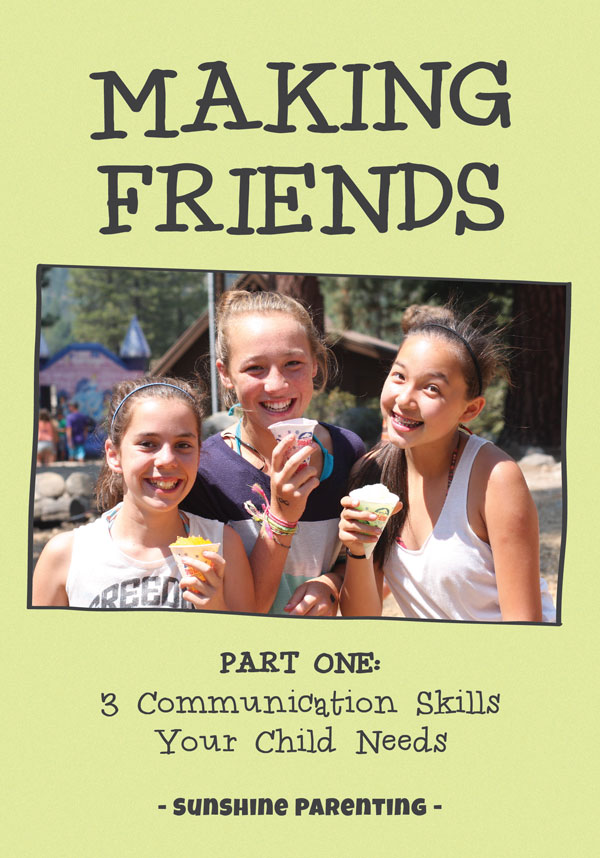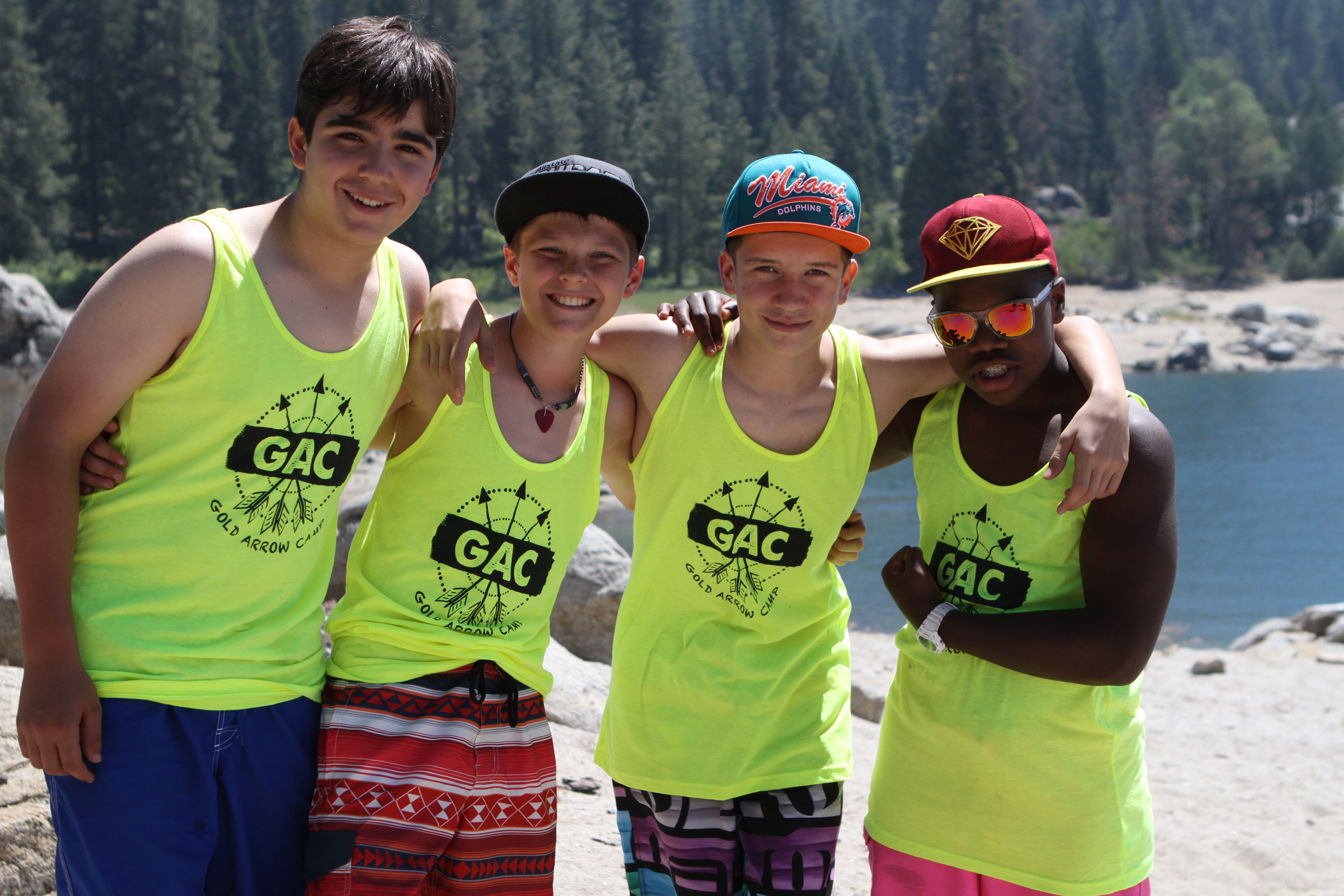Making Friends: 3 Communication Skills Your Child Needs
 Leaving a soccer game last fall, a teammate called out to my son, “Great game today!”
Leaving a soccer game last fall, a teammate called out to my son, “Great game today!”
My son didn’t turn his head. He grunted something unintelligible, and he walked away.
My husband and I were shocked. Did he not know that you RESPOND to a compliment by turning towards the person and saying, “Thanks!” or returning a compliment?
No. He didn’t. And that’s because he hadn’t picked up on it watching others, and we hadn’t specifically taught him the skill.
Thus began my research to determine what specific skills our kids need to thrive socially. We also started weekly family dinner conversations about social skills. We call it “Social Skill of the Week.”
You may have a socially-adept child who has intuitively picked up great social skills by watching you or their peers. But there are many kids, including mine, who need some extra parental support in this area.
Social skills are part of what we model and teach at camp, and our counselors know that they are “Social Skills Coaches” for their campers. You can be your child’s social skills coach at home, too!
Here are some tips on how to coach your child about three communication skills that will help them make and keep friends.
Communication Skills that Foster Friendships
-
Questioning
People’s favorite topic to talk about is themselves. So, it’s no surprise that asking questions helps you make friends.

• Step 1: Ask, “What do people most like to talk about?” When we posed this question to our boys, they mentioned “hobbies” and some specific games and movies that are currently popular.
• Step 2: Share that people’s favorite thing to talk about is themselves.
• Step 3: Brainstorm questions you can ask people about themselves. Write some down.
• Step 4: Role play a discussion, taking turns being the one asking questions and the one answering.• Step 5: Have them practice on someone at school and report back to you how it goes. Remind them to use questioning when opportunities come up for talking with other kids. -
Sharing
How we share information about ourselves can either attract or repel people.

• Step 1: Ask, “Think about someone you like a lot. When they share information about themselves, how do they say it?” Discuss different ways people can share things about themselves and the adjectives and verbs that come to mind, like “humble,” “proud,” “bragging,” and “know-it-all.”
• Step 2: Ask, “What do you like to share about yourself?” Talk about hobbies, interests, and other things they’re proud of and like to talk about with friends.
• Step 3: Brainstorm ways to share information that don’t sound “know-it-all” or “braggy.” Talk about tone of voice and the words used.
• Step 4: Role play a discussion by asking them questions and having them share about themselves. Assess how they sound and gently coach if they come off in a “repel” kind of way. You can say, “I could tell how much you like Star Wars, but when you insisted that I had the wrong name for the Wookie, it made me feel bad. How else could you have shared that?”
• Step 5: Keep practicing! And remind them about communication skill #1 and how it’s important to balance conversations with sharing and questioning so that they’re not always talking about themselves. -
Extending Invitations
This kind of extending invitations does not refer to your child’s annual birthday party. Every day, we have opportunities to extend invitations to other people. For kids, invitations are things like, “Would you like to sit with me at lunch today?” and “Want to play basketball during recess?”

• Step 1: Ask, “What are different things kids have invited you to do that make you feel included?”
• Step 2: Brainstorm a list of different invitations your child could extend to other kids.
• Step 3: Role play making a casual invitation that sounds friendly, not too formal. Include how to gracefully respond when someone declines. And, let your child know that it’s okay for people to decline an invitation. Kids with social skills deficits often view the rejection of an invitation as “bullying,” but it’s important to be aware that kids may, for many different reasons, just not feel like doing or playing what your child is inviting them to do. And that’s okay.
• Step 4: Have them take this invitation skill out into the world and report back to you how their invitations are going and if they are engaging more with other kids.
Enjoy coaching your child to better communication skills, and stay tuned for Making Friends: Parts Two & Three about more social skills that can help your kids make and keep friends!
Resources:
How Children Make Friends: Part 1 (Psychology Today)
Helping your Child Make New Friends (PBS)
Kids who need a little help to make friends
How to Help Kids Make Friends (Parenting Science)
Helping Children Make Friends (Education.com)

